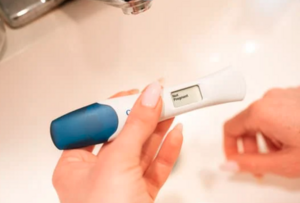Female Infertility: Causes and Cures
Female Infertility – Causes and Cures :
If you are struggling to conceive, you are not alone. Female infertility affects millions of women worldwide. Infertility is defined as the inability to get pregnant after one year of unprotected sex. While there are many factors that can contribute to infertility, female infertility is often the result of an underlying medical condition. If you believe you are suffering from this female infertility, the causes and cures may become more apparent to you after reading my article.,
One of the leading causes of female infertility is ovulation disorders. These disorders can prevent the release of an egg from the ovaries, making it difficult or impossible to conceive. Other factors that can contribute to female infertility include problems with the uterus, fallopian tubes, or cervix, as well as hormonal imbalances and age-related factors.
Key Takeaways
- Female infertility affects millions of women worldwide and is often the result of an underlying medical condition.
- Ovulation disorders are a leading cause of female infertility, but other factors such as problems with the uterus, fallopian tubes, or cervix, hormonal imbalances, and age-related factors can also contribute.
- There are many treatment options available for female infertility, including medications, surgery, and assisted reproductive technologies such as in vitro fertilization (IVF).
RELATED INFORMATION: How To Treat Anxiety Disorders
What Are the Leading Causes of Female Infertility
 Female infertility is a condition where a woman is unable to conceive or carry a pregnancy to full term. There are many different factors that can contribute to infertility, including medical conditions, lifestyle factors, and environmental factors. However, the most common cause of female infertility is problems with ovulation.
Female infertility is a condition where a woman is unable to conceive or carry a pregnancy to full term. There are many different factors that can contribute to infertility, including medical conditions, lifestyle factors, and environmental factors. However, the most common cause of female infertility is problems with ovulation.
Ovulation is the process by which a woman’s body releases an egg from her ovaries, which can then be fertilized by sperm to create a pregnancy. If a woman is not ovulating regularly, or not ovulating at all, then she will be unable to conceive.
More Prevalent Causes of Female infertility, and their cures.
There are many different factors that can contribute to problems with ovulation. Some of the most common include hormonal imbalances, thyroid disorders, polycystic ovary syndrome (PCOS), and premature ovarian failure. In some cases, ovulation problems may also be caused by certain medications, such as chemotherapy drugs or antidepressants.
If you are experiencing problems with ovulation, it is important to speak with your healthcare provider. They can help you identify the underlying cause of your infertility and recommend appropriate treatment options. Depending on your specific situation, treatment may involve medication, lifestyle changes, or assisted reproductive technologies such as in vitro fertilization (IVF).
In addition to problems with ovulation, there are many other factors that can contribute to female infertility. These may include problems with the fallopian tubes, endometriosis, uterine fibroids, and autoimmune disorders. Your healthcare provider can help you identify and address any underlying factors that may be contributing to your infertility, and help you find the best treatment options to help you conceive.
Hereditary Factors in Female Infertility, Causes and Cures
 Female infertility can be caused by a variety of factors, including genetic or hereditary factors. According to the National Center for Biotechnology Information (NCBI), genetic factors account for about 10% of all infertility cases in women.
Female infertility can be caused by a variety of factors, including genetic or hereditary factors. According to the National Center for Biotechnology Information (NCBI), genetic factors account for about 10% of all infertility cases in women.
There are several genetic conditions that can cause female infertility. These include Turner syndrome, Fragile X syndrome, and Polycystic Ovary Syndrome (PCOS). Turner syndrome is a chromosomal disorder that affects about 1 in 2,500 females. Women with Turner syndrome have only one X chromosome instead of two, which can lead to infertility. Fragile X syndrome is another genetic disorder that can cause infertility. Women with Fragile X syndrome have a mutation in the FMR1 gene, which can affect ovarian function.
PCOS
Polycystic Ovary Syndrome (PCOS) is a common hormonal disorder that affects up to 10% of women of reproductive age. PCOS can cause irregular periods, weight gain, and infertility. Studies have shown that PCOS has a hereditary component, meaning that it can be passed down from parents to their children.
Other genetic factors that can contribute to female infertility include mutations in the BRCA1 and BRCA2 genes, which are associated with an increased risk of breast and ovarian cancer. Women with mutations in these genes may choose to have their ovaries removed to reduce their risk of developing cancer, which can lead to infertility.
While hereditary factors can contribute to female infertility, it’s important to remember that not all cases of infertility are caused by genetics. Lifestyle factors, such as smoking, alcohol consumption, and poor diet, can also play a role in infertility. If you are struggling with infertility, it’s important to talk to your doctor about your options for diagnosis and treatment.
Signs of Infertility
 If you have been trying to conceive for over a year without success, it may be time to consider the possibility that you or your partner may be infertile. However, sometimes there are signs that you may be infertile before trying to conceive. Here are some signs you should look out for:
If you have been trying to conceive for over a year without success, it may be time to consider the possibility that you or your partner may be infertile. However, sometimes there are signs that you may be infertile before trying to conceive. Here are some signs you should look out for:
- Irregular periods: If your menstrual cycle is too long (35 days or more), too short (less than 21 days), irregular or absent, it could mean that you are not ovulating. This is a common cause of infertility in women.
- Painful periods: If you experience severe cramping or pain during your period, it could be a sign of endometriosis, which can affect fertility.
- Hormonal changes: If you experience changes in your sex drive, hair growth, or weight gain, it could be a sign of hormonal imbalances that affect fertility.
- Pelvic pain: If you experience pain during sex or pelvic pain at other times, it could be a sign of pelvic inflammatory disease (PID), which can cause infertility.
- Abnormal discharge: If you notice abnormal discharge or a foul odor, it could be a sign of an infection that can affect fertility.
- Age: As you get older, your fertility declines. Women over 35 may have a harder time getting pregnant than younger women.
If you experience any of these signs, it is important to talk to your doctor. They can help you determine if you are infertile and recommend appropriate treatment options. Remember, infertility is a medical condition, and there are many treatments available to help you conceive.
Impact of Cellphones on Fertility
Wireless devices like cellphones, Wi-Fi, and other communication technologies release radiofrequency radiation that can harm the human body. There is a growing concern that exposure to this radiation may be linked to female infertility.
Studies have shown that exposure to cellphone radiation can affect the reproductive system. The radiation emitted by cellphones can lead to a decrease in sperm count and motility in men, and it can also affect the quality of eggs in women.
Cellphone radiation can also affect the endocrine system, which is responsible for regulating hormones in the body. This can lead to hormonal imbalances that can affect fertility.
Wrap Up Your cell?
One study found that women who used cellphones for more than an hour a day had a 60% higher risk of infertility than those who did not use cellphones. Another study found that men who carried their cellphones in their pockets had a lower sperm count and motility than those who did not.
While the exact mechanism by which cellphone radiation affects fertility is not yet fully understood, it is clear that there is a link between the two. If you are trying to conceive, it may be a good idea to limit your exposure to cellphone radiation.
Female Infertility, Simple Causes and Cures?
To reduce your exposure to cellphone radiation, you can take the following steps:
- Use a headset or speakerphone when talking on the phone.
- Keep your cellphone away from your body as much as possible.
- Avoid carrying your cellphone in your pocket or bra.
- Turn off your cellphone when you are not using it.
- Use airplane mode when you are not actively using your phone.
By taking these steps, you can reduce your exposure to cellphone radiation and potentially improve your chances of conceiving.
RELATED INFORMATION: Modern Treatments for Male Infertility
Female Infertility Treatment
 If you are struggling with female infertility, there are several treatment options available to help you conceive. The type of treatment that is right for you will depend on the underlying cause of your infertility.
If you are struggling with female infertility, there are several treatment options available to help you conceive. The type of treatment that is right for you will depend on the underlying cause of your infertility.
Medications for Ovulation Disorders
If your infertility is due to ovulation disorders, your doctor may prescribe medications to stimulate ovulation. These medications can regulate or induce ovulation, and include:
- Clomiphene citrate
- Letrozole
- Metformin
- Gonadotropins
Your doctor will determine the best medication for you based on the cause of your ovulation disorder.
Surgery for Physical Problems
If your infertility is due to physical problems such as blocked fallopian tubes or uterine fibroids, surgery may be necessary to correct the issue. Surgery can help to remove blockages and improve your chances of conception.
In Vitro Fertilization (IVF)
In vitro fertilization (IVF) is a sophisticated technique that can help women with a variety of infertility issues to conceive. During IVF, eggs are harvested from the ovaries and fertilized with sperm in a laboratory. The resulting embryos are then transferred into the uterus.
IVF can be used to treat infertility caused by:
- Blocked or damaged fallopian tubes
- Endometriosis
- Male factor infertility
- Unexplained infertility
Intrauterine Insemination (IUI)
Intrauterine insemination (IUI) is a fertility treatment that involves placing sperm directly into the uterus. This can help to increase the chances of conception by bypassing any issues with the cervix or cervical mucus.
IUI can be used to treat infertility caused by:
- Cervical factor infertility
- Male factor infertility
- Unexplained infertility
Donor Eggs or Sperm
If your infertility cannot be treated with the above methods, you may consider using donor eggs or sperm. This can be a viable option for women who have:
- Premature ovarian failure
- Poor egg quality
- Genetic disorders
- Male factor infertility
To conclude this section , there are several treatment options available for female infertility. Your doctor can help you determine the best course of action based on the underlying cause of your infertility.
RELATED INFORMATION: The Keto Diet For Beginners
Cost of Female Fertility Test
If you are experiencing difficulty getting pregnant, you may need to undergo female fertility testing to determine the cause of infertility. However, the cost of female fertility tests can vary depending on the type of test and location.
Some common fertility tests for women include:
- Ovarian reserve testing
- Hormone testing
- Hysterosalpingography (HSG)
- Laparoscopy
 The cost of ovarian reserve testing, which helps determine the quality and quantity of eggs available for ovulation, can range from $200 to $500. Hormone testing, which measures levels of hormones that regulate the menstrual cycle, can cost anywhere from $50 to $200.
The cost of ovarian reserve testing, which helps determine the quality and quantity of eggs available for ovulation, can range from $200 to $500. Hormone testing, which measures levels of hormones that regulate the menstrual cycle, can cost anywhere from $50 to $200.
HSG, which is an X-ray procedure that examines the uterus and fallopian tubes, can cost between $500 and $1,000. Laparoscopy, which is a surgical procedure that allows a doctor to view the inside of the abdomen and reproductive organs, can cost anywhere from $5,000 to $10,000.
It’s important to note that these costs are just estimates and can vary depending on your location and insurance coverage. Some insurance plans may cover some or all of the cost of fertility testing, while others may not.
If you are concerned about the cost of fertility testing, it’s important to talk to your doctor or insurance provider to determine your options. Some fertility clinics may also offer payment plans or financing options to help make testing more affordable.
In summary, the cost of female fertility testing can vary depending on the type of test and location. It’s important to talk to your doctor and insurance provider to determine the cost and coverage of fertility testing and explore options for making it more affordable.
Frequently Asked Questions
What are the top 5 causes of female infertility?
The top 5 causes of female infertility are age-related factors, ovulatory disorders, tubal factors, uterine factors, and endometriosis. Age-related factors are the most common cause of female infertility, and they can affect the quality and quantity of eggs available for ovulation.
 How to test if a woman is infertile?
How to test if a woman is infertile?
There are several tests that can be done to determine if a woman is infertile. These tests include ovarian reserve testing, hormone testing, imaging tests, and laparoscopy. These tests help determine the quality and quantity of eggs available for ovulation, as well as any issues with the reproductive system that may be causing infertility.
Can you cure infertility in females?
The answer to this question depends on the underlying cause of infertility. In some cases, infertility can be cured with medical or surgical treatments. In other cases, infertility may be managed with assisted reproductive technologies such as in vitro fertilization (IVF) or intrauterine insemination (IUI). However, it is important to note that not all cases of infertility can be cured.
What are the 6 primary causes of female infertility?
The 6 primary causes of female infertility are age-related factors, ovulatory disorders, tubal factors, uterine factors, endometriosis, and unexplained infertility. Age-related factors are the most common cause of female infertility, followed by ovulatory disorders and tubal factors.
What is the leading cause of female infertility?
Age-related factors are the leading cause of female infertility. As a woman ages, the quality and quantity of eggs available for ovulation decrease, making it more difficult to conceive.
Female Infertility, Causes and Cures: Can a woman become fertile again?
There are several ways a woman can become fertile again, depending on the underlying cause of infertility. In some cases, medical or surgical treatments may be used to address the underlying cause of infertility. In other cases, assisted reproductive technologies such as IVF or IUI may be used to help a woman become pregnant.



